Rating of the best antibiotics for 2025
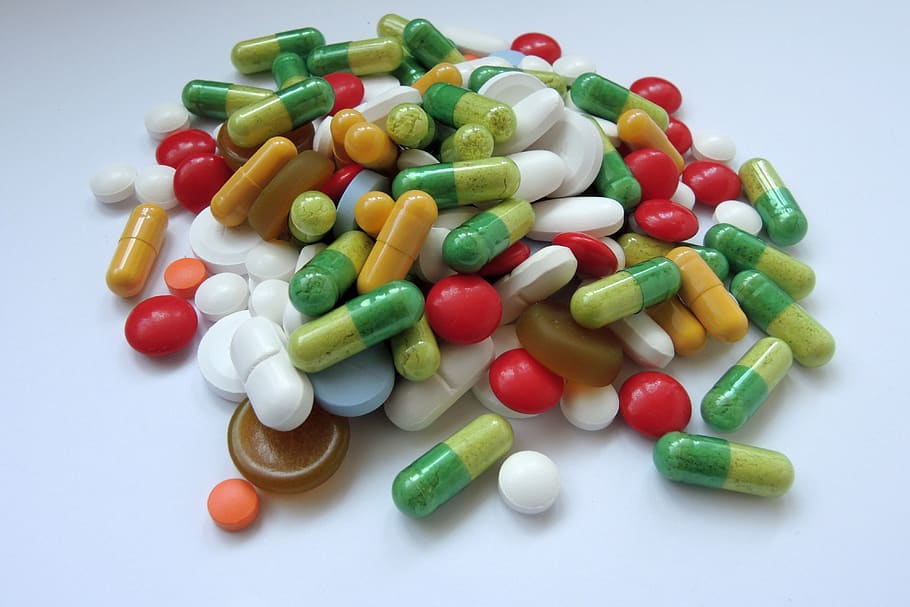
Medicines that kill bacteria are called antibiotics. They are able to selectively suppress the growth and reproduction of certain types of bacteria. A huge variety of infectious diseases causes a wide range of substances used in medicine.
Antibiotics are obtained by processing the waste products of other microorganisms (fungi, bacteria, actinomycetes). But there are also antibacterial agents that are completely synthetic, which have no analogues of natural origin.
Content [Hide]
- 1 Mechanism of action and classification of antibiotics
- 2 What are antibiotics
- 3 Recommendations of physicians on the choice of remedies for various colds
- 4 Rating of the best antibiotics for 2025
- 4.1 10. Unidox Astellas (Japan)
- 4.2 9. Pancef Alkaloid (Macedonia)
- 4.3 8. Monural Zambon Group (Switzerland)
- 4.4 7.Klacid Abbott (India)
- 4.5 6. Zinnat GlaxoSmithKline (UK)
- 4.6 5. Rovamycin Sanofi-Aventis (France)
- 4.7 4. Flemoxin Astellas (Netherlands)
- 4.8 3. Tavanik Sanofi-Aventis (Germany)
- 4.9 2. Ciprolet Dr. Reddy`s Laboratories LTD (India)
- 4.10 1. Summamed Pliva (Croatia)
Mechanism of action and classification of antibiotics
To understand what it is and how an antibiotic works, you need to consider the structure of a bacterial cell.
Under the shell, consisting of polysaccharides, there is DNA coiled into a spiral - a nucleoid, a place for storing genetic information, ribosomes that provide protein synthesis, and some other organelles.
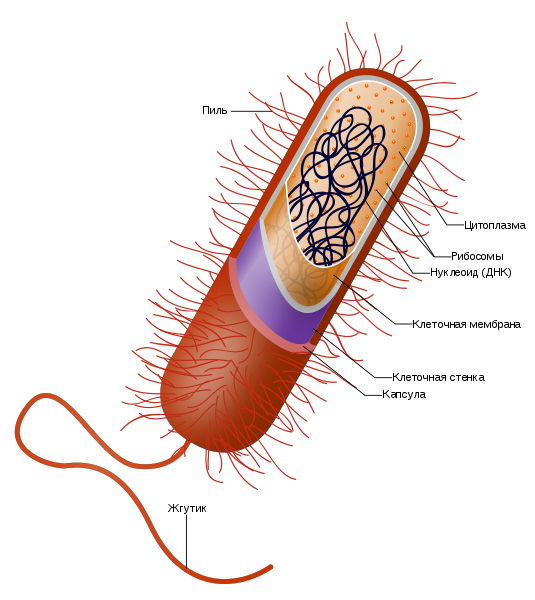
Antimicrobial substances can perform their function by acting on the bacterial cell, striking precisely at these three “targets”.
According to the object of influence, antibiotics are distinguished that violate biochemical processes in:
- bacterial shell;
- nucleoid;
- ribosomes.
Accordingly, some drugs violate the integrity of the cell wall, thereby leading the microbial cell to death, others change the normal course of the processes of nucleic acid and protein synthesis, which means they inhibit the growth of living cells and prevent the reproduction of bacteria.
In this regard, there is another classification:
- bactericidal - destroy microbes;
- bacteriostatic - prevent the spread of infection.
Important: Antibiotics do not act on viruses, because viral particles lack the above structures.
According to the purpose of the impact, there are:
- highly specific, which act only on certain types of bacteria (penicillin and some of its derivatives, anti-tuberculosis, antifungal drugs);
- a wide spectrum of action, which allow them to be used for many different infections.
The most widely used in medicine is the use of broad-spectrum antibiotics, because:
- the appointment is possible at an early date, without waiting for the result of the analysis;
- the antimicrobial effect will be noticeable against any bacteria present in the body;
- the risk of concomitant infection and the development of superinfection (a complication in which a weakened body is attacked by several infectious agents at the same time) is significantly reduced.
What are antibiotics
There is also a classification based on the chemical structure of the antimicrobial substance.
- The broad group of beta-lactam antibiotics is divided into three subgroups:
- penicillins;
- cephalosporins;
- carbapenems.
The mechanism of action is based on damage to the cell wall of microorganisms.
- Macrolides - inhibit protein synthesis. They are considered one of the most effective and safe drugs.
- Tetracyclines - inhibit the growth and reproduction of bacteria by inhibiting protein synthesis. But they are not used as often because of the many negative side effects.
- Aminoglycosides - disrupt the process of protein formation. Considered to be quite effective.
- Levomycetins - have bacteriostatic properties, disrupt the process of protein synthesis.
- Glycopeptide antibiotics - disrupt the synthesis of the cell wall, blocking the production of substances that make it up.
- Lincosamides - act on ribosomes, disrupting protein synthesis.
- Fluoroquinolones - inhibit DNA synthesis, prevent the reproduction of pathogens.
There are other drugs whose structure does not fit this classification, and they are combined into a separate group of others.
According to doctors, the patient should not wonder how to choose an antibiotic. Antimicrobials should be taken strictly as directed. The doctor must prescribe not only the medicine itself, but also the dosage, frequency and duration of the course, as well as give advice on adherence to the regimen.
But still, in exceptional cases, you can do without a visit to the doctor. Therefore, it will not be superfluous to know the best manufacturers and their most popular and inexpensive drugs.
Foreign manufacturers
- Astellas Pharma is a Japanese pharmaceutical company. It has representative offices in many European countries.
- Sandoz is a German concern founded in 1886. One of the leaders in the production of amoxicillin.
- GlaxoSmithKline is a UK based company founded in 2000. It has offices all over the world. The most popular drug of this company is Augmentin.
- KRKA is an international company, founded in 1954, headquartered in Slovenia. Factories are located in many countries of Europe and Russia as well.
- Laboratoires Bouchara Recordati. Joint venture between Italy and France. Exists since 1926. Produces an original antibiotic under the trade name Isofra.
- Pliva is a large company in Southern Europe. Created in 1921 in Croatia, since 2008 it has been part of the TEVA concern. A popular drug is Sumamed.
domestic producers
- Dalchimpharm is the oldest enterprise in Russia, one of the ten leading manufacturers of pharmaceuticals. Production is located in the city of Khabarovsk. Exists since 1939.
- PJSC "Biosintez" is a concern of the largest pharmaceutical enterprises in Russia. It ranks fifth in the world in terms of output. Founded in 1955 in Penza.
- JSC FP "Obolenskoye" is the successor of the State Scientific Center for Applied Microbiology.Since 2013, it has been part of the Alvansa concern. All products comply with international standards.
- Synthesis is a pharmaceutical plant in the city of Kurgan. Known for the discovery of technology for the production of ampicillin trihydrate.
Knowing manufacturing companies that have proven themselves well, you can purchase their products at a pharmacy or order online. But in addition, you need to know which drugs are prescribed for various diseases.
Recommendations of physicians on the choice of remedies for various colds
There are certain rules and selection criteria depending on the affected organ or organ system.
- With the flu
Although the flu is a viral illness, doctors prescribe antibiotics to prevent complications caused by a wide variety of bacteria. Therefore, the list of drugs can be very extensive.
- With angina
Acute tonsillitis is caused by streptococci and staphylococci. Accordingly, it is necessary to choose a drug that is effective against these pathogens.
Based on the recommendations of doctors, it is better to treat angina with drugs: Sumamed, Unidox, Pancef.
- With bronchitis
Undertreated angina quickly turns into acute bronchitis. And for the treatment of this disease, Flemoxin, Unidox, Zinnat are recommended.
- With pneumonia
With such a formidable disease as pneumonia, you need to visit a doctor. He can prescribe drugs such as Sumamed, Tsiprolet, Rovamycin.
- With sinusitis
If a person is diagnosed with sinusitis, then you should immediately start taking Zinnat, Pancef.
- With cystitis
The undisputed leader in the treatment of urinary tract infections is Monural.
Which antibiotic is better to buy
But it must be remembered that self-prescribing and uncontrolled medication can cause irreparable damage to health.In order to eliminate errors when choosing a remedy, it is necessary to carefully read the contraindications according to the instructions, study the functionality and how to take this or that form of medication.
It should be borne in mind that the trade name may differ from the name of the antimicrobial agent included in the composition. Often the name is given by the presence of excipients. But you should not focus on buying budget drugs. Although the active ingredient is one, the additives used by well-known manufacturers often make the medicine safer and more effective.
Therefore, you should not always choose by price. When asked: which company is better to buy an antibiotic, you need to study the characteristics of not only the active agent itself, but also the excipients. Or focus on a rating that takes into account not only popularity, but also customer reviews.
What else you need to pay attention to
In order not to fall for the trick of scammers and not to buy a fake, which often happens when ordering drugs in an online store, you need to carefully study the packaging material, find out how much this or that drug costs in a regular pharmacy, look at reviews and ask about the opinions of other buyers.
Rating of the best antibiotics for 2025
10. Unidox Astellas (Japan)
votes 2
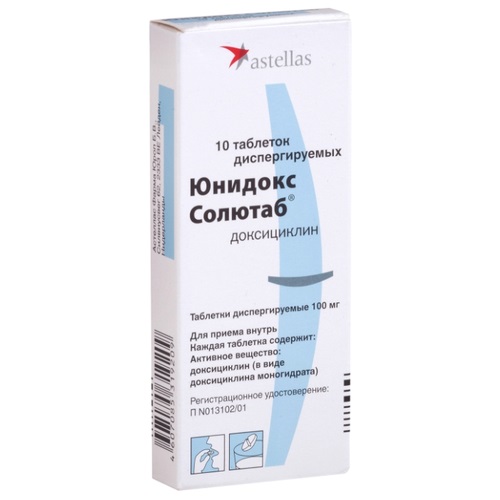
The average price in pharmacies: 250 - 300 rubles.
The active substance is doxycycline, a broad-spectrum antibiotic of the tetracycline group.
Effective against gram-negative and gram-positive microorganisms such as streptococci, staphylococci, neisseria, treponema, listeria, enterobacter, chlamydia, mycoplasma, ureaplasma and others. Does not affect Proteus, Pseudomonas, Enterococci.
For doxycycline, cross-resistance often occurs, with a resistant strain being insensitive to the entire tetracycline group.
Unidox can be prescribed for infections of the upper respiratory tract, urinary system, gastrointestinal tract, soft tissues. And also with chlamydia, rickettsiosis and many others. It is often used to prevent malaria when visiting countries with foci of this infection.
- high degree of absorption;
- affordable price;
- taking the medicine does not depend on food intake.
- contraindicated in pregnancy and breastfeeding;
- not applicable to the treatment of children under 8 years of age;
- accumulates in bones and dentin.
9. Pancef Alkaloid (Macedonia)
votes 0
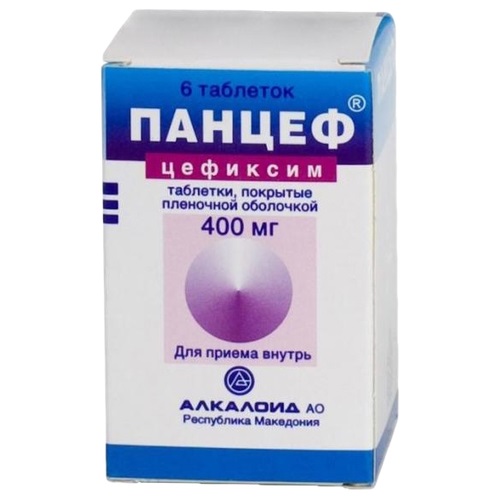
The average price for a pack of 6 tablets of 400 mg is 550 rubles.
The active substance is cefixime. A broad-spectrum antibiotic, a derivative of penicillin, belongs to the subgroup of III generation cephalosporins.
It is highly active against streptococci, Haemophilus influenzae, most enterobacteria, including Escherichia coli, Salmonella and Shigella, Neisseria.
Staphylococci, enterobacter and clostridia are resistant to cefixime.
Used to treat infectious diseases of the upper and lower respiratory tract, otitis media, genitourinary system, including uncomplicated gonorrhea.
- variety of dosage forms (tablets, suspensions);
- the possibility of admission from six months of life;
- reasonable price, in comparison with analogues.
- high risk of allergy, especially if there is a history of reactions to penicillin;
- not recommended in the elderly;
- contraindicated in colitis and renal failure.
8. Monural Zambon Group (Switzerland)
votes 0
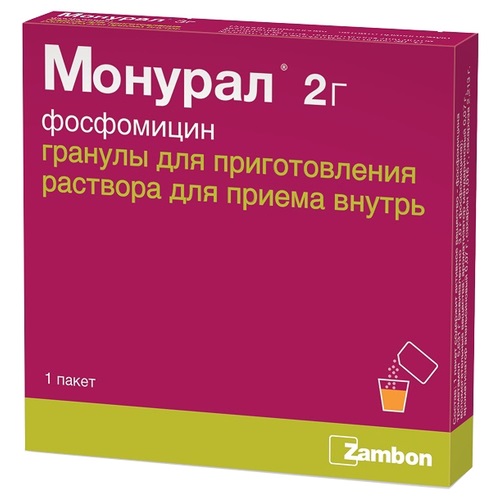
Price: from 350 rubles.
The active substance is fosfomycin.
Efficiency has been proven against enterococci, staphylococci, most enterobacteria, Klebsiella.
Monural is used for urinary tract infections: cystitis, urethritis, pyelonephritis. Approved for use during pregnancy in case of a significant amount of bacteria in the urine.
- available in the form of granules for the preparation of a solution with a pleasant citrus taste;
- allowed for children from 5 years old and pregnant women;
- - highly specific, can act on many microorganisms, but works only in the urinary system, as it is not processed by the body and absorbed in the urine, where it does not allow infectious agents to attach to the wall of the urinary tract.
7. Klacid Abbott (India)
votes 0
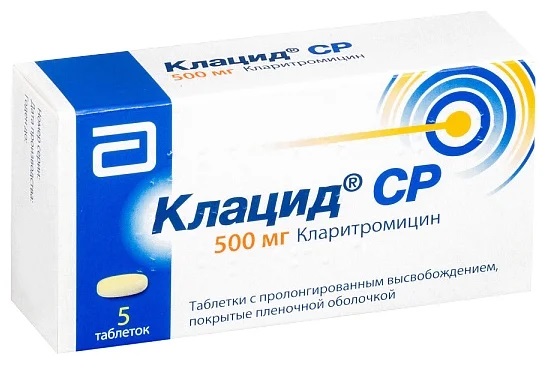
The average price depends on the form of release. Tablets: from 500 rubles, granules for suspension preparation: from 600 rubles.
The active ingredient is clarithromycin. An antibiotic of the macrolide group that inhibits protein synthesis.
It is especially effective against legionellosis, mycoplasma pneumonia and infections of the gastrointestinal tract caused by Helicobacter pylori and many types of mycobacteria.
It should be noted that clarithromycin has proven effective against not only aerobic, but also anaerobic microorganisms.
Given the wide spectrum of action of the drug, it can be taken for a variety of diseases: infections of the respiratory tract, genitourinary system, gastrointestinal tract, mycobacteriosis associated with HIV infection, skin and soft tissues, and others.
- high efficiency against a variety of infectious agents;
- variety of forms.
- rather high price;
- an extensive list of side effects and contraindications;
- bitter taste and specific smell.
6. Zinnat GlaxoSmithKline (UK)
votes 0
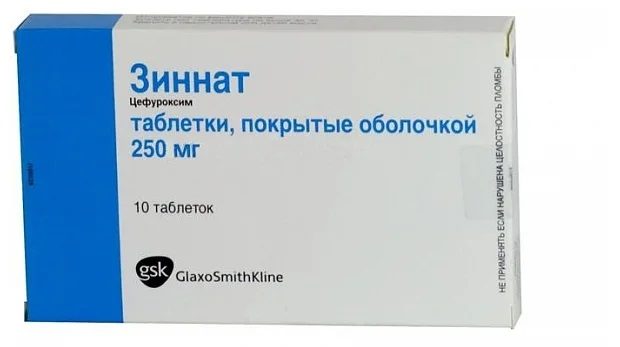
Average price: 400 rubles.
The active substance is a 2nd generation cephalosporin antibiotic - cefuroxime. The substance acts on the bacterial cell wall.
Highly effective against staphylococci, Haemophilus influenzae, Neisseria, Borrelia and Peptostreptococcus. Listeria, clostridia, many types of enterobacteria, as well as chlamydia, mycoplasma and legionella are resistant to cefuroxime.
Zinnat can be taken for infectious diseases of the upper respiratory tract, urinary and genital tract, infections of the skin and soft tissues (boils, impetigo and pyoderma), and for Lyme disease (borreliosis).
- does not have a pronounced taste and smell;
- approved for use in children from 3 months (as a suspension).
- the medicine must be taken strictly after meals;
- can cause allergies;
- not recommended if you have problems with the digestive system.
5. Rovamycin Sanofi-Aventis (France)
votes 0
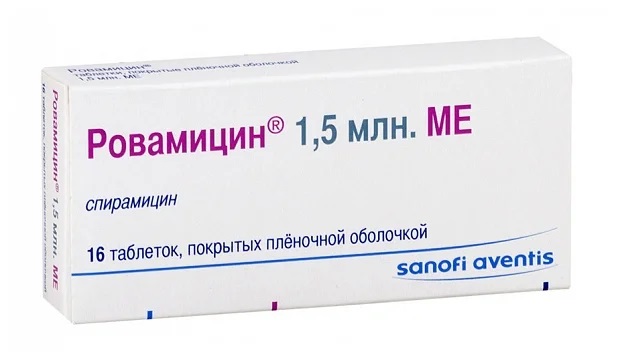
Price: from 700 rubles.
The active substance is spiramycin, belongs to the group of macrolides. One of the most modern drugs.
Neisseria, clostridium and ureaplasma are sensitive to it. Some staphylococci, enterobacteria, fusobacteria, mycoplasmas are resistant.
Rovamycin is prescribed for infections of the respiratory system (including SARS), most skin diseases (dermatoses, impetigo, erysipelas), with damage to bones and joints, genitourinary infections (not gonorrheal). Often used to prevent meningitis.
- can be used during pregnancy;
- rarely causes allergies.
- absorbed quickly, but not completely, with great variability (from 10 to 60%);
- quite high price.
4. Flemoxin Astellas (Netherlands)
votes 1
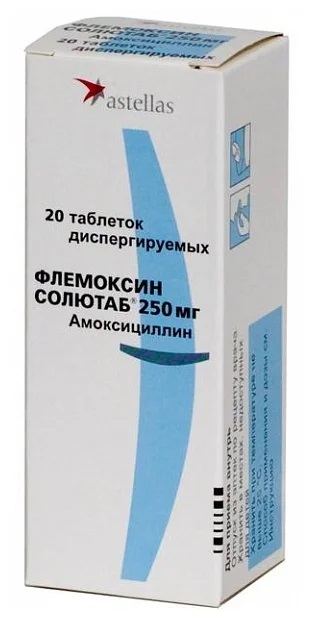
The price depends on the dosage of the active substance, the form with a minimum concentration: from 200 rubles.
Flemoxin contains an active substance - semi-synthetic penicillin.
Affects streptococci, clostridia, neisseria, listeria and anthrax, as well as some types of staphylococci. Almost all bacteria of the Enterobacteriaceae family are resistant to Flemoxin.
It is used for infections of the skin, respiratory tract and urinary system.
- absorbed almost completely;
- acid-resistant;
- effective even at low concentrations;
- does not depend on food intake.
- contraindicated in mononucleosis or lymphocytic leukemia;
- like any antibiotic of the penicillin series, it can cause allergies.
3. Tavanik Sanofi-Aventis (Germany)
votes 1
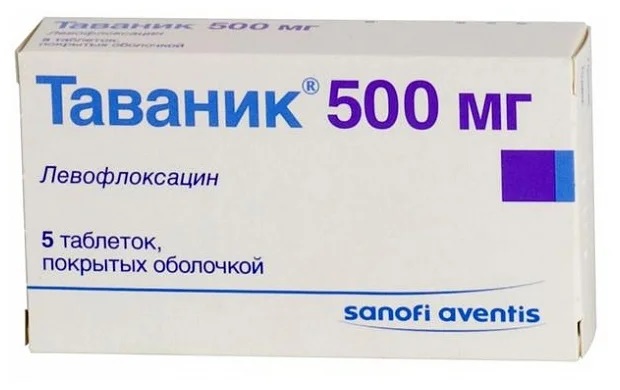
Price: from 450 rubles.
The active substance is levofloxacin from the group of fluoroquinolones. Suppresses the synthesis of DNA of a bacterial cell.
The following are sensitive to levofloxacin: the causative agent of anthrax, Staphylococcus aureus and saprophyte, Streptococcus, Mycoplasma, Chlamydia and Ureaplasma, Klebsiella, Haemophilus influenzae. Only enterococci are resistant, but there are a number of bacteria that can become resistant: Pseudomonas aeruginosa and many members of the Enterobacteriaceae family.
The range of diseases in which the appointment of the drug Tavanic is indicated is quite wide, these are diseases of the genitourinary system and respiratory tract.A distinctive feature of levofloxacin is its effectiveness in the pulmonary form of anthrax. The drug is also used for post-exposure prophylaxis for this disease.
- absolute bioavailability;
- high efficiency.
- appointed only to persons over the age of 18;
- contraindicated in epilepsy;
- may cause allergies.
2. Ciprolet Dr. Reddy`s Laboratories LTD (India)
votes 0
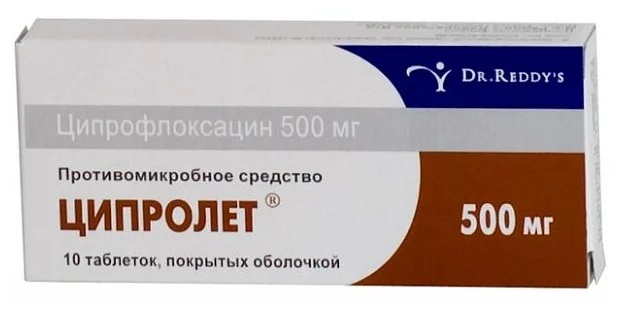
Average price: 150 rubles.
A unique combined agent, consists of ciprofloxacin and tinidazole.
Tinidazole is an imidazole derivative, an antiprotozoal and antimicrobial agent, effective against Trichomonas, intestinal amoebae and Giardia, as well as Clostridia, Bacteroids, Fusobacteria.
Ciprofloxacin is a derivative of fluoroquinolones. It acts not only on DNA synthesis, but also destroys the cell wall, causing the death of bacteria that are at rest.
Almost all members of the enterobacteria family, intracellular microorganisms (legionella, brucella, listeria, mycobacteria), staphylococci and streptococci are sensitive to the drug. But there are also resistant microorganisms: bacteroids, Pseudomonas aeruginosa, clostridia and the causative agent of syphilis - pale treponema.
Tsiprolet can be used for diseases of the upper and lower respiratory tract, infections of the gastrointestinal tract, and the genitourinary system.
In addition to the above systems and organs, ciprofloxacin is prescribed for bacterial lesions of bones and joints, as well as infections of the oral cavity.
- well absorbed;
- a wide range of applications;
- affordable;
- complex effect (effective against not only bacteria, but also protozoa).
- contraindicated in persons under 18 years of age;
- can cause allergies, inhibition of bone marrow hematopoiesis.
1. Summamed Pliva (Croatia)
votes 0
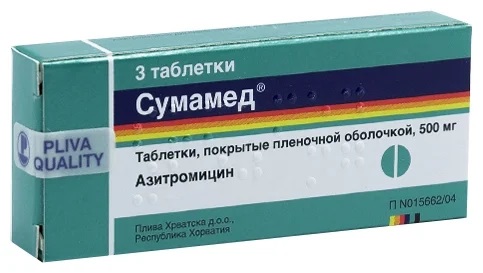
Price: from 250 rubles.
The active substance azithromycin is an antibiotic of the azalide macrolide group (new generation macrolides).
It has activity against many types of staphylococci, streptococci, Haemophilus influenzae, Neisseria, chlamydia, mycoplasmas, Legionella, Borrelia. Pneumococci, enterococci and anaerobic bacteroids are resistant to azithromycin.
Azithromycin is indicated for infections of the upper and lower respiratory tract, genitourinary system (cervicitis and urethritis caused by chlamydia), skin diseases, the initial stage of Lyme disease.
- relatively safe, side effects are rare;
- budget and quality.
- Azithromycin is contraindicated in renal and hepatic insufficiency.
Given all of the above, it must be concluded that the best medicines for each specific case are those that the doctor will prescribe. Undoubtedly, these should be pharmaceutical preparations, with a detailed description and in the original packaging.
It is necessary to strictly follow the rules for their intake, in this case they will fully fulfill their function, will not cause addiction, and will not lead to the development of an infection caused by resistant bacteria.
All sorts of ratings and reviews allow you to navigate the variety of companies, their original drugs and budget counterparts.
new entries
Categories
Useful
Popular Articles
-

Top ranking of the best and cheapest scooters up to 50cc in 2025
Views: 131651 -

Rating of the best soundproofing materials for an apartment in 2025
Views: 127690 -

Rating of cheap analogues of expensive medicines for flu and colds for 2025
Views: 124518 -

The best men's sneakers in 2025
Views: 124033 -

The Best Complex Vitamins in 2025
Views: 121939 -

Top ranking of the best smartwatches 2025 - price-quality ratio
Views: 114980 -

The best paint for gray hair - top rating 2025
Views: 113395 -

Ranking of the best wood paints for interior work in 2025
Views: 110318 -

Rating of the best spinning reels in 2025
Views: 105329 -

Ranking of the best sex dolls for men for 2025
Views: 104366 -

Ranking of the best action cameras from China in 2025
Views: 102215 -

The most effective calcium preparations for adults and children in 2025
Views: 102011









